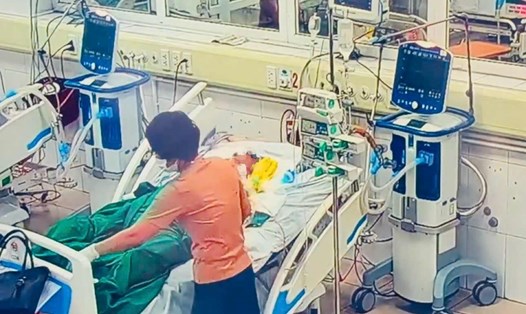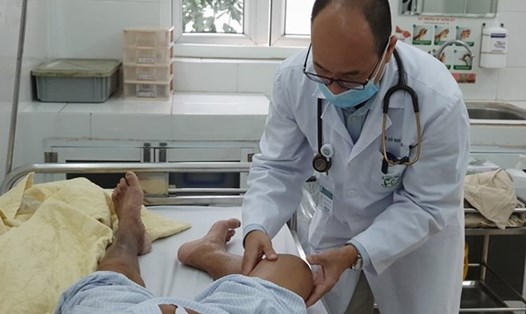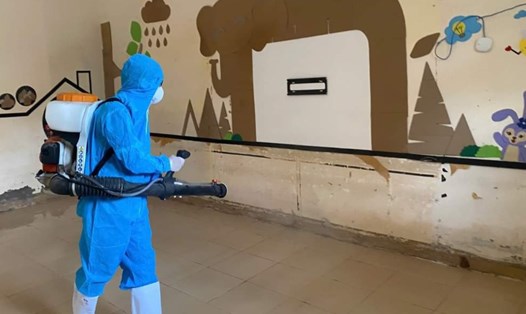After the recent prolonged floods, many infectious diseases broke out, including leptospirosis. This is not a new disease but many people do not know about it.
5 people in the family of Mr. N.V.C, 48 years old in Thai Nguyen, had fever and fatigue. Mr. C had high liver enzymes, acute kidney failure and thrombocytopenia and had to be admitted to the Central Hospital for Tropical Diseases.
About four days after the historic floods caused by Typhoon Yagi in the northern provinces, Mr. C began to experience symptoms of high fever of unknown origin, accompanied by fatigue, difficulty breathing, abdominal distension and pain in the right flank.
In addition, he urinated less and his health condition worsened. Although he bought fever-reducing medicine himself, Mr. C's symptoms did not improve, forcing him to go to a local medical facility for examination.
Here, he was diagnosed with an infection and prescribed antibiotics for 2 days. However, after the fever subsided, symptoms such as difficulty breathing, abdominal distension and little urination remained, and he even experienced bouts of agitation and uncontrollable writhing. By the end of the 4th day and the beginning of the 5th day, he was transferred to the Emergency Department - Central Hospital for Tropical Diseases.
Ms. N.T.H, Mr. C’s wife, said that her family lives in a level 4 house in a heavily flooded area of Dong Bam, Thai Nguyen. The flood caused water to be up to 1.8 meters deep, forcing the family to live in polluted floodwater. All household items were submerged in water, and the family’s livestock barns were also severely affected.
Based on epidemiological factors, especially the fact that Mr. C's family lived in a flooded environment for a long time and had direct contact with flood water, doctors suspected that he and four family members had Leptospira.
Leptospirosis is a zoonotic disease with diverse clinical manifestations ranging from latent infection, mild form without jaundice or meningitis to typical acute clinical form, severe jaundice called Weil's syndrome which can be fatal.
Leptospira present in water or wet soil contaminated with animal urine will enter the body through the skin, especially broken skin, and can enter through the pores of soaked skin or through mucous membranes in contaminated swimming pools. Leptospira can be contracted through direct contact with urine or animal tissue contaminated with the spirochete. Occasionally, the disease is contracted by eating food contaminated with rat urine.
Usually, the disease is occupational due to skin and mucous membrane contact with veterinarians, livestock farmers in poor barn hygiene conditions, especially in pig farms, fishermen, farmers working in low-lying fields, workers working in swamps, mines or cleaning sewers...
The disease also often occurs during the rainy season, especially in flooded areas or when people swim in ponds or lakes infected with Leptospira from animals. Transmission of Leptospira from person to person is very rare.










